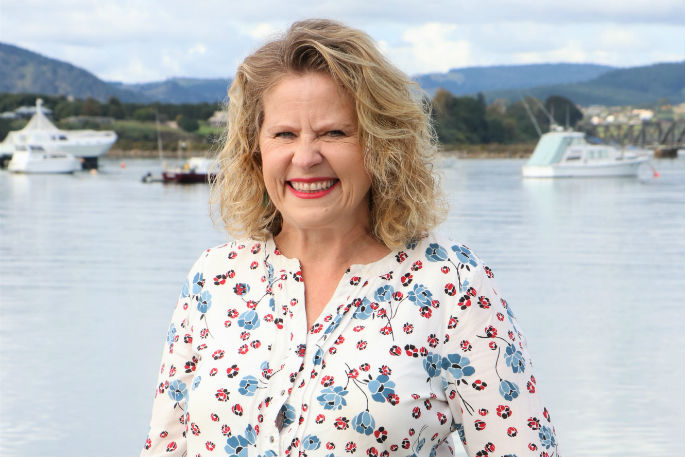Mathematics and statistics teacher at Mount Maunganui College, Leisa Renwick is enjoying her two week holiday, making the most of life.
Four years ago she didn't know if she had any more time to live.
Back then, Leisa wasn't feeling so well. Two days later she had a swollen stomach, and just days later she was told she had melanoma, and had just weeks to live.
'People say at least melanoma is just a skin cancer, and they don't realise you have skin cells all throughout your body.
'I know several people now who have never had a mole removed, and their first tumor was in their lung or their breast.”
Leisa says melanoma is all about risk factors.
'With me, I did have a melanoma removed from my back in 2010, but it was really shallow, and the day I found it, I got it taken off.
'There was this ugly thing on me, and I wanted it off now.”
Her melanoma was only 0.43mm, and she says once she got it removed, she thought it would never come back.
One day four years ago, after experiencing a protruded stomach, Leisa went to the hospital to get herself checked out.
'My abdomen swelled up to the point where I looked really pregnant, and a couple of weeks after that I was told I had weeks to live.
'I had just come back from Madrid, and I thought I had picked something up.”
Leisa says after a biopsy, the doctors 'clicked” it was melanoma, and it spread all throughout her body.
Leisa says she owes a lot to her husband, who conducted treatment research and who she says was her brain while she was unwell.
'He was doing all the Googling, research, and he kept pushing.”
Her husband drove her to Auckland to a private cancer clinic, and Leisa says the doctors looked at her and said she was on her last legs.
She was given dabrafenib, a gene therapy drug.
'There was only a 50 per cent chance that I had the mutation to make that work, and I did, otherwise I wouldn't have been here.”
Because dabrafenib becomes resistant to melanoma over time, Leisa switched to pembrolizumab, or known as Keytruda, which kept her alive.
However, Pharmac doesn't fund the efficient melanoma drugs, meaning Leisa and other dying melanoma patients have to fork out of their own pocket to stay alive.
When Leisa became well enough, she set up a petition to parliament for melanoma drugs to be funded.
'I have a responsibility to speak out because I am still here, and other people aren't.
'Dying people don't have a voice.”
Leisa says it is all about money, rather than advocacy.
'People are dying of melanoma, and they are being offered nothing.”
After coming off treatment a year ago, Leisa is still fighting for melanoma sufferers, in the hopes of getting pharmaceutical companies, politicians, doctors and non-profit organisations like the Cancer Society together to have important conversations around funding melanoma drugs.

